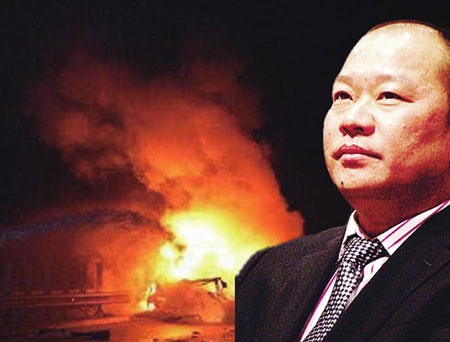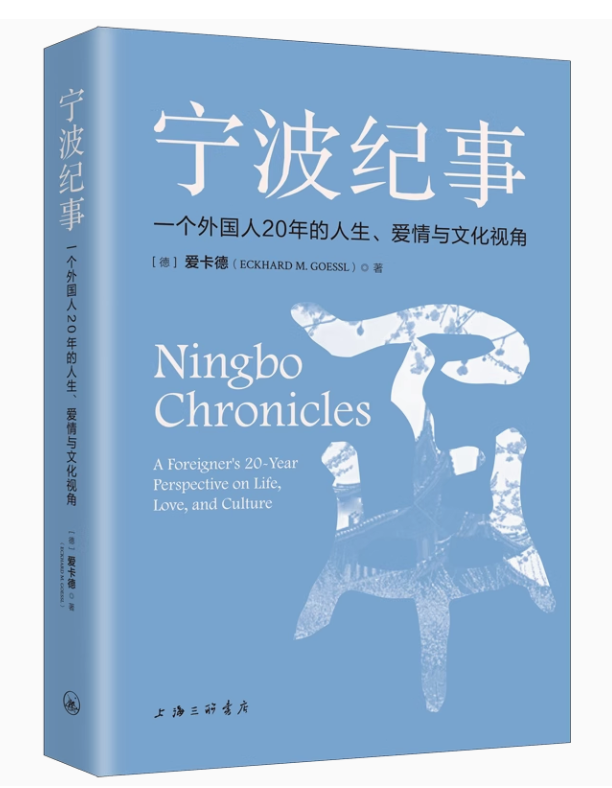- Details
-
Category: Ningbo Business
-
Published: Saturday, 06 August 2011 19:03
Editors Note: This is a translated and edited version of an article from the Chinese website sina.com.cn. The article is the account of a journalist who, while reading through published reports dating back to 2003, realised that there seemed to be an abnormally large number of very wealthy Chinese that had met their demise during the past eight years; 72 in fact. Their causes of death were even more unusual – fatal illness, suicides, murders, state execution and “accidents”.

baidu.com
According to the Hurun Report, in 2009, Mainland China had 55,000 people who were worth more than 100 million RMB. In 2010, this figure increased 9.1% to 60,000. Using this data, we can figure that the mortality rate for these 100-millionaires already exceeds 1.5 per 10,000. It has been reported that the most dangerous occupation in China is serving as a police officer; the police officer mortality rate is 3 per 10,000. So, it seems that “the super wealthy” should be added to this list of dangerous occupations, no?
Does overworking cause fatal illness?
The data indicates that the cause of death for 19 of the 72 multi-millionaires was illness (about 26%); making it the number one killer of the super rich. Among these cases, nine died from cardiovascular diseases, like cerebral embolisms, myocardial infarction, etc. Seven died from various forms of cancer. If these sorts of serious illness had been present in these people over many long years and they were getting old too, one couldn’t really say that this was such an unusual way to die. But these 19 individuals all passed away relatively young – on average at the age of 48 (youngest being 37 and the oldest being 59). One could say that the rich become wealthy through hard work, but are these habits of overworking, not relaxing, and not having a social life also causing their bodies to break down and succumb to diseases easier?
Does pessimism lead to defeat\failure?
Of the 72 individuals who died, 17 of them chose to end their own lives. Eight hung themselves, six jumped off buildings, three poisoned themselves, and one set himself on fire. Depression was determined to play a primary role in these individuals’ decisions. Why were they depressed? The media speculated that it might have been because they knew they were about to be exposed for something unsavoury, or because huge financial problems arose in their companies. After the infamous Mattel toy recall, the head of the production company having just lost his fortune and his honour, killed himself.
But, according to Senior Psychological Consultant Zhang Zhenhuan, in reality, for some wealthy people, these types of "business pressures" don’t cause them to get depressed; actually, it is because their lives are so different from those of ordinary people that they can’t identify with anyone; that is to say, they are incredibly lonely. This feeling of alienation leads to stress and frustration, but they feel that they are unable to seek the psychological treatment that normal people use, and instead bear their burdens in silence, until this leads to the logical extreme. The higher they climb; the harder they fall.
Murdered because of competition
According to the findings, 15 of the 72 individuals were murdered (20.8%). Behind each case, lies a gruesome story. In one case, an individual who didn’t comply with the excessive demands of a childhood friend, was shot to death in his office. In another case, the person was shot after being extorted by an acquaintance. In yet another case, because of a business dispute, the individual was hac-ked up by a hit man who was hired by his own business partner. Another individual was murdered after being pressed for repayment of debt. Regardless of whether the killer was a friend, business partner or competitor, they committed this heinous crime out of desire for money.
Put to death for being miscreants of the lowest order
Really, 14 of these individuals have no one to blame but themselves. They died because they severely violated the law, accumulation of wealth along the way and then got caught. Play with fire, and you’re going to get burned. One individual was executed in Shenyang not just for fraternising with the mob but for, for one reason or another, intentionally committing homicide among other crimes. Another individual was executed after it was discovered that he had been using his money to live an "indulgent lifestyle”, which is the nice way of saying that he sexually assaulted 24 underage girls and used his money to cover it up. Five people were put to death for illegally collecting (read: stealing) huge amounts of money, committing fraud and extorting other people.
Fun fact: of the 72 rich people that died, two were women, who were put to death for illegally using/stealing money. Interestingly, in the scope of this study, the proportion of deceased 100-millionaire men to women corresponds with the proportion of 100-millionaire men to women in China (91.72% of Chinese 100-millionaires are men).
Another Chinese saying explains the necessity for executing these kinds of people: the more one deceives, the harder they should be punished. Perhaps this is similar to the English saying “Mo' Money, Mo' problems”?
Cause of death determined as "accidental" (air quotes everywhere!)
In 2007, one individual died in Guangzhou due to high levels of thallium in his blood. The only problem is, it’s pretty difficult to be accidentally exposed to a lethal amount of thallium; instead it looks an awful lot like someone poisoned him. In another case, an individual, who apparently had a history of debt problems, was found by his driver after he “accidentally fell off a building.” Yet another individual was killed in an explosion after chemicals used for an experiment were “improperly mixed”. Although each case was officially labeled an accident, rumours of unlawful doings still surround them.
Reporter’s notes: how to be a rich "normal person"
In the process of researching and understanding each of these individuals’ background story and how it in one way or another brought about their demise, the journalist began to feel that that this group of 100-millionaires was in fact more fragile than normal people in many ways, most notably because they have more desires and they must endure greater pressures.
He finally notes that, even though the above report is in no way scientifically conclusive that being rich is inherently dangerous, it has become apparent to him that regardless of your amount of wealth, a good nature and a healthy lifestyle are two things that money cannot buy. Instead, the super-wealthy need to focus on figuring out how to live a bit more like normal people.
Source: Sina.com.cn
Aug 03, 2011By eChinacities.com











